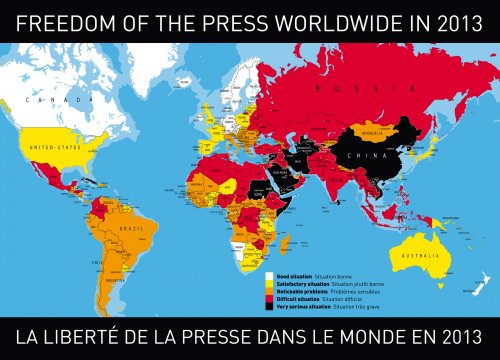Media bodies condemn arrest and detention of S. Sudanese journalist
March 12, 2012 (JUBA) – The International Federation of Journalists (IFJ) has condemned the “very inhumane” manner in which a South Sudanese journalist was arrested and detained in the capital, Juba.
 The Union of Journalists of South Sudan (UJOSS) said in a statement, that Alfred Taban was arrested on Sunday and detained for hours, following an article that appeared in the Juba Monitor newspaper.
The Union of Journalists of South Sudan (UJOSS) said in a statement, that Alfred Taban was arrested on Sunday and detained for hours, following an article that appeared in the Juba Monitor newspaper.
Taban, a former stringer for the BBC is the paper’s chief editor.
The Juba-based daily, according to UJOSS, had published an opinion piece, from a citizen in South Sudan’s Lakes state, questioning the integrity of the former governor, Chol Tong Mayay in relation to state funds he allegedly failed to account for.
The ex-governor, irked by the article, reportedly went to the police and immediately filed a case against the publication. Taban was subsequently arrested and detained in small cell for hours without access to water, food or anything to sit on.
“We condemn the arrest and detention of Taban as a criminal. Citizens must be allowed to express their views in the public interest as this is what guarantees good governance, accountability and probity. This expression cannot be criminalized,” said Gabriel Baglo, the IFJ Africa Director.
We call on authorities in South Sudan to stop with immediate effect, the intimidation of journalists and endeavour to promote freedom of expression and of the press, he added.
Oliver Modi, the UJOSS chairperson said the incident was another “violation” of the freedom of the press and of expression in the country.
South Sudan, which became independent in July 2011 as part of the 2005 peace deal that ended decades of civil war with north Sudan, still lack functional media legislation.
Over the last two months, however, UJOSS says it documented more than 10 cases of arrests and detentions due to the absence of media laws in South Sudan.
“We urge parliamentarians to pass the laws to protect journalists, media actors and the public. The delay of passing the media laws is a challenge for the administration of justice for journalists, media houses and the public in South Sudan,” Modi said.
The Uganda Journalists Union (UJU) also condemned South Sudan authorities for “continued” repression directed at the media in the new nation, citing reports of “growing intolerance and systematic attacks, intimidation and detention without trial” by state security agencies on members of the media.
“Press Freedom and freedom of expression is slowly but constantly being eroded in South Sudan, and fear is being instilled on the media while intimidation, torture and detention remains order of the day,” Lucy Anyango Ekadu, the UJU president said in a statement.
Authorities in South Sudan must respect and appreciate the role played by the press in effecting political, social and economic development in the country, it added.
A recent report by the Committee to Protect Journalists (CPJ) found that local journalists fear officials in the current South Sudan government, still harbour a war mentality that is unaccustomed to criticism, and thus not prepared to extend the freedoms they fought hard to attain.
“We are still recovering from a war culture,” the UJOSS chairperson told CPJ in September last year.
“There is just too much ignorance toward the press. We are not used to systems, structures—even the media,” he added.
South Sudan, according to the annual press freedom index published by Reporters Without Borders (RWB) in January, stood at 124 out of the 180 countries ranked.
(ST)
